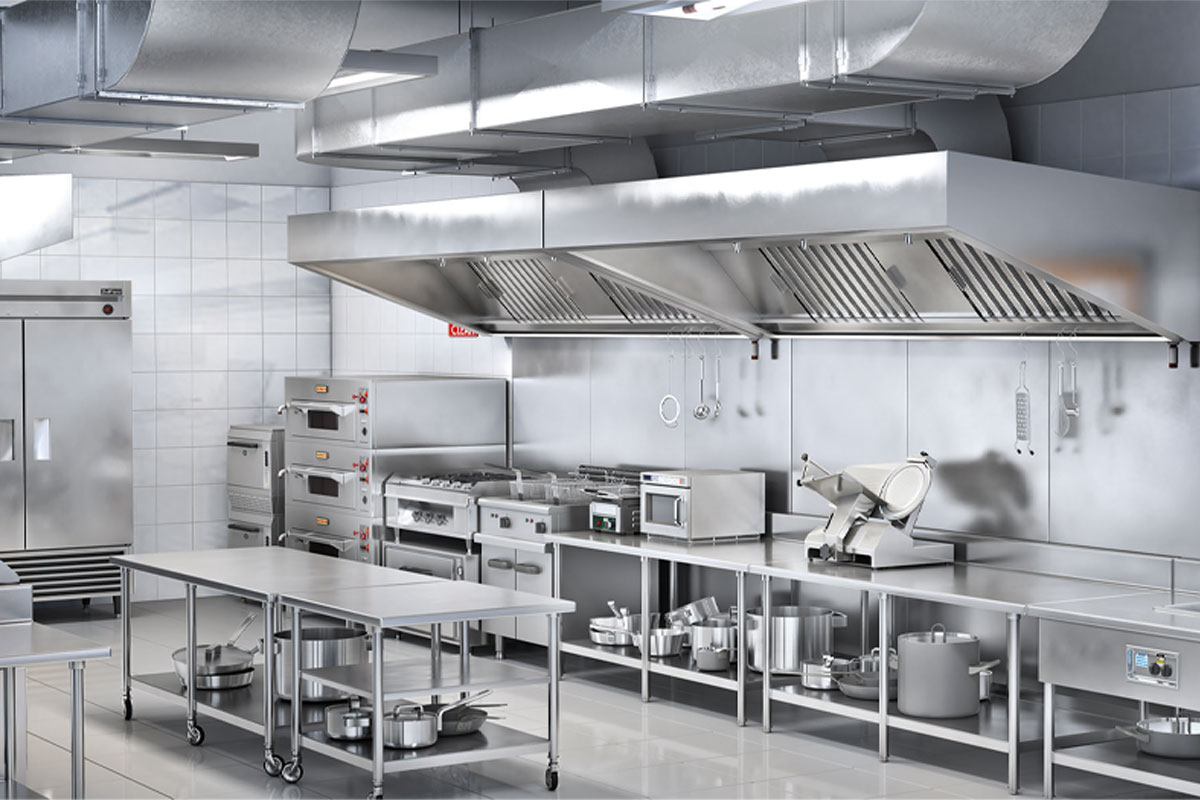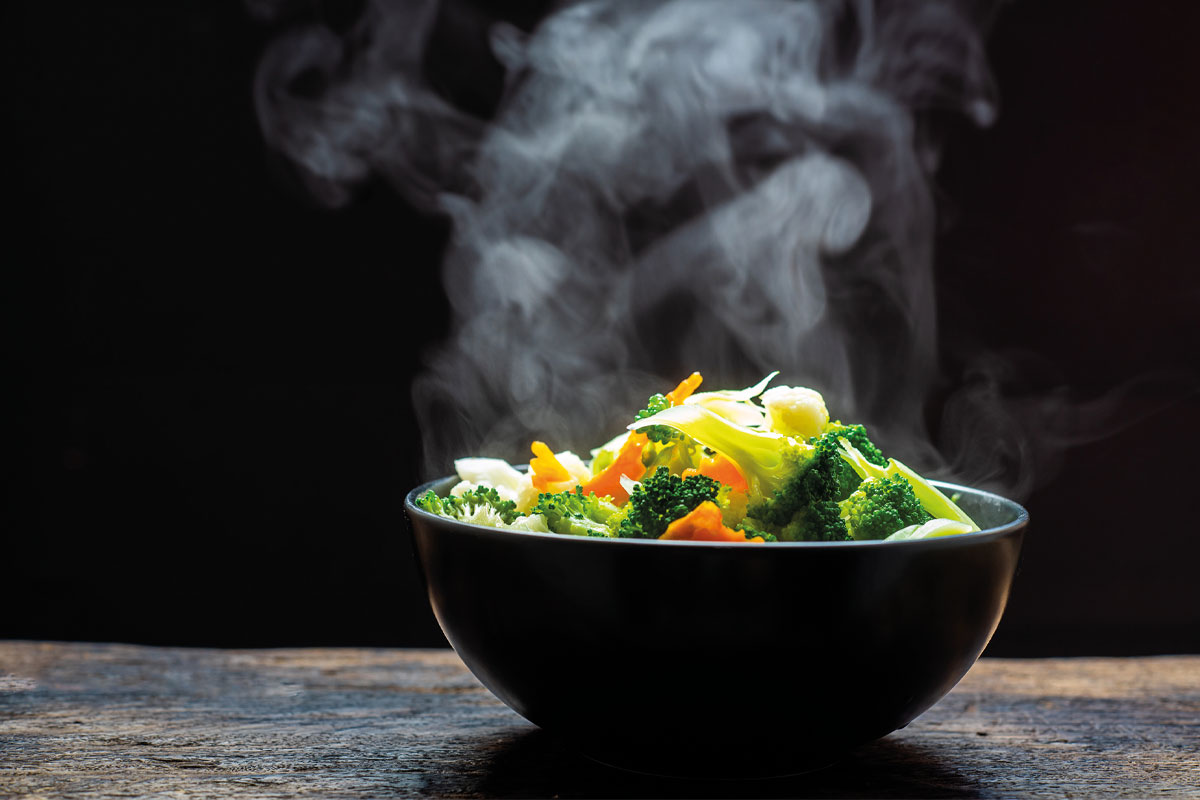Commercial microwaves can help operators make the most of their space, say suppliers

AS bar and pub operators across Scotland prepare for what will hopefully be a busy summer season, those with food offers will be wanting to ensure their kitchens are running as efficiently as possible.
And when it comes to efficiency in the kitchen, commercial microwaves punch well above their weight, according to equipment suppliers.
The variety of uses offered by contemporary commercial microwaves is said to be vast, with units able to perform many more tasks than merely reheating food.
“Most would view the main benefits of microwaves as reheating of cooked food product, boosting food temperatures and defrosting,” said Duncan Vipas, head of sales at RH Hall.
“However, today’s kitchen demands rely on microwave ovens for much wider tasks.
“Understanding a microwave and getting the right techniques for each type of food; succulent meat, poultry and fish together with perfectly cooked vegetables that retain taste, texture and nutritive value are all possible.”
The technology itself has come a long way since the microwave first made an appearance in the late 20th century, a fact that was reinforced by Stephen Hobbs, chair of FEA, the Foodservice Equipment Association, when he said there is now “a huge choice of cooking appliances that combine microwave with other heating systems, such as convection, grill, impinger and infra-red”.
“They not only cook food fast, they also deliver quality results, browning the product to deliver superior flavours,” said Hobbs.
“These turbocharged cooking machines are usually designed to prepare one or two portions and are often pre-programmed with a limited menu that means staff simply pop the food in, push the relevant number or icon, and let the oven get on with the job.
“It may not be creative cooking, but it’s certainly consistent.”
In fact, at a time when many venues are continuing to struggle with staff and skills shortages, equipment such as combination microwaves might be more useful than ever, argued Barnaby Sykes, head of category marketing at Panasonic UK.
“With operators now facing staff and skills shortages it’s important for them to maintain a reliable method of producing good quality food,” said Sykes.
“One cost-effective option for pub and bar operators to consider is a combination microwave.
“When pitched against other accelerated cooking options, the combination microwave can offer a very economical solution with its small footprint for the range of capabilities – grill, toast, bake, brown, crisp, roast as well as cook, heat and defrost, a lower price point than many other types of rapid cooking ovens and its 13 amp power supply; no need to hard-wire!”


Advancements in technology haven’t meant the death of the traditional microwave oven, however, and Hobbs said the more traditional design “is still a kitchen workhorse that is perfect for heating and defrosting quickly”.
In addition to tasks such as heating and defrosting food, Hobbs said regular commercial microwaves are perfectly suited to processes including steaming fish or vegetables.
“It’s also very energy efficient,” said Hobbs.
Whether it’s a basic model or a more advanced combination microwave that is the best choice for a venue will depend very much on what will be required of the equipment, said Vipas at RH Hall.
He said in order to select the right kind of microwave, operators should “look at their menu and decide what tasks the microwave oven should undertake”.
“If the microwave is to be used mainly for simple reheating and defrosting of foods then a straight-forward commercial microwave will suffice,” he said.
“However, if you wish to reheat and cook food products then a combination microwave oven is well advised.”
Regardless of whether they choose a conventional or combination microwave, however, it’s essential that operators opt for a commercial unit rather than making the mistake of trying to save a few pounds by picking up a domestic model.
“Don’t buy a domestic microwave oven,” said Hobbs at FEA.
“FEA has been banging on about it for ages, and we still are, and with good reason.
“Yes, they’re cheap, but they’re not safe in a commercial setting.
“Domestic models aren’t up to the task of a foodservice kitchen.
“They can compromise food safety.
“How powerful do you need your microwave to be?
“Many operators are attracted by the fact that most models run off a 13 amp supply.
“However, if you need more power three phase versions are available.”
Sykes at Panasonic UK agreed.
He said domestic models are generally designed to be used up to three times a day – considerably less usage than will generally be required in a commercial kitchen.
“A professional oven can easily rack up over 200 use cycles per day so the demands on it are very different,” said Sykes.
“A well-built professional microwave from a known brand will have been tested to fully endure the rigours of a commercial kitchen and easily cope with a stressed chef slamming the door with a little vigour!
“Also heat distribution, speed and the lack of a turntable all make a professional microwave the right choice.”
As with so many products bar and pub operators will be looking at purchasing, there have been some disruptions to the microwave supply chain in recent months. However, Vipas at RH Hall said suppliers with a “wide knowledge of the market” should be able to help operators navigate their way around any issues, “as they will be best placed to advise on the latest availability updates and will have access to a wide range of brands and models at varying price points”.
And he stressed that, once a piece of kit is in place, it is essential that it is properly looked after.
“When using your microwave on a regular basis, one tip that shouldn’t be overlooked for getting the best from a microwave is regular cleaning,” said Vipas.
“Keep the oven’s cavity and inner door clean of food spillage/deposits at all times. This will avoid cavity burn ups and prolong the life of its heart, ‘the Magnetron’.”


























